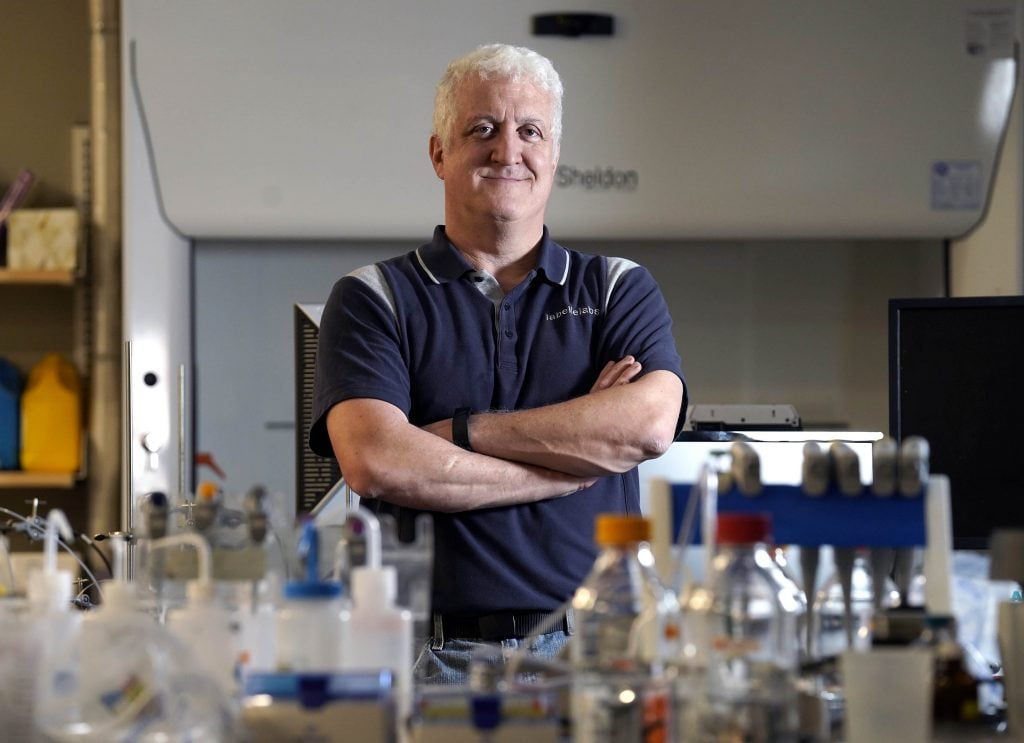
EDITOR'S NOTE: This is an expanded version of a story printed in the August issue of GCU Magazine. To read the digital version of the magazine, click here.
La Belle Labs might be the most magical place on Earth.
Tucked behind card-access-only doors in Grand Canyon University’s Engineering Building, the smattering of rooms is where a student-designed robot for Benchmark Electronics might zip by.
Or where the curious might engage in a zombie-meets-Nazi World War II board game.
Or where students, thanks to a $2.3 million Helmsley Trust Charitable Grant, are working with the University of North Carolina and the Mayo Clinic to test electrochemical sensors that will continuously measure insulin levels — sensors that will go into what could be a game-changing wearable device for diabetics.
Or they might meet the professor behind it all, Dr. Jeff La Belle, as he’s mentoring students in their board game designs, robot prototyping, insulin sensor testing or their business ideas.
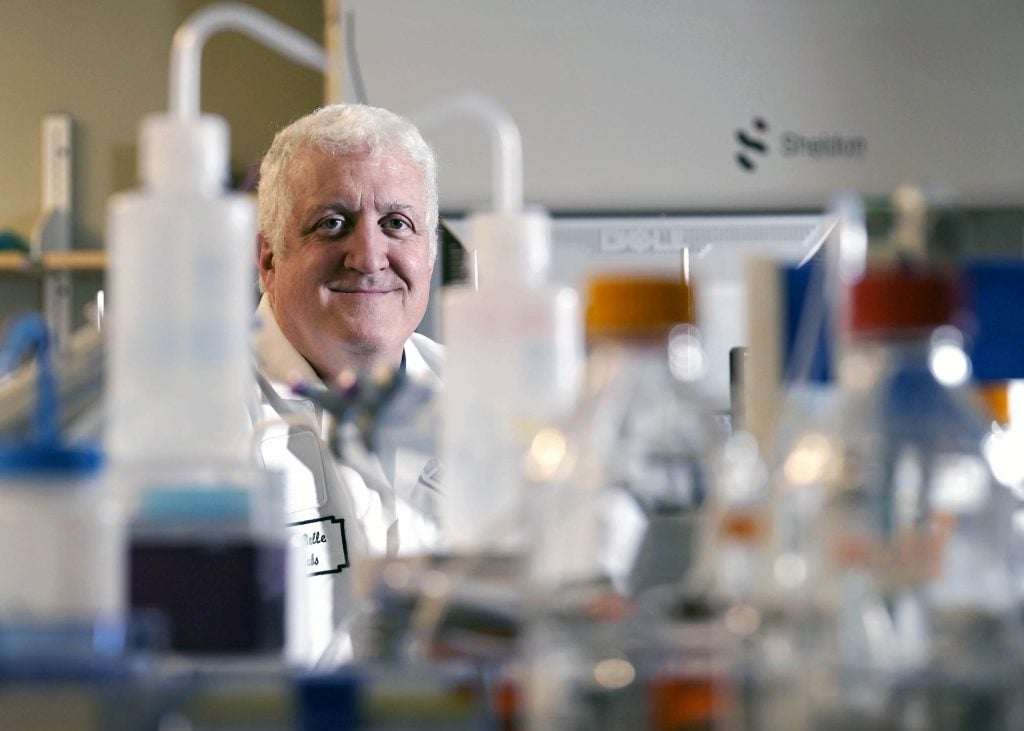
La Belle picked up his hands-on teaching style from one of his mentors.
When he was a freshman bragging about his aerospace engineering background, his professor pointed to a scanning electron microscope (SEM) and asked, “Do you know what that is?” When La Belle said, “No,” his professor replied, “It’s got an electrical problem. If you’re such a hotshot, why don’t you fix it?”
Some sweat and tears later, La Belle did just that, so his professor schooled him on how to use that scanning electron microscope.
When La Belle moved to Arizona from Massachusetts, he landed a night and weekend job as an SEM technician.
“It was a skill I picked up. That’s why someone hired me. They didn’t hire me because I had a bachelor’s degree. They hired me because I knew how to use a microscope.”
Those hands-on skills? They’re key.
“My model comes from my old advisor,” La Belle said. “He would take undergrads and train them better than anybody else’s grad students.”
La Belle, whose degrees are in electrical and biomedical engineering, lives by that model at GCU, where he brought his medical device design and prototyping lab after almost 14 years at Arizona State University.
Recently retired Provost Dr. Hank Radda and GCU Office for Research and Innovation Executive Director Dr. Mike Mobley, who worked with La Belle at ASU, sought him for the University’s new engineering program.
“Jeff mentored many students who were highly recruited by industry for their practical, hands-on experience in his lab,” Mobley said of the “problems-solving” biomedical engineer. “Since preparing students for successful industry careers was the key design priority for our new engineering programs, this made him a natural fit.”
One of La Belle’s favorite stories is when he paired a new graduate student in his lab with one of his undergrads.
“He is chit-chatting, and I was around the corner listening. He said, ‘You really know what you’re doing. What year are you?’ She said, ‘I’m a first-year.’ He said, ‘Oh, Ph.D. or master’s?’ She said, ‘Freshman.’”
The grad student’s mouth dropped.
“That’s really the magic. It’s not about the silos. It’s about, what do you know?”
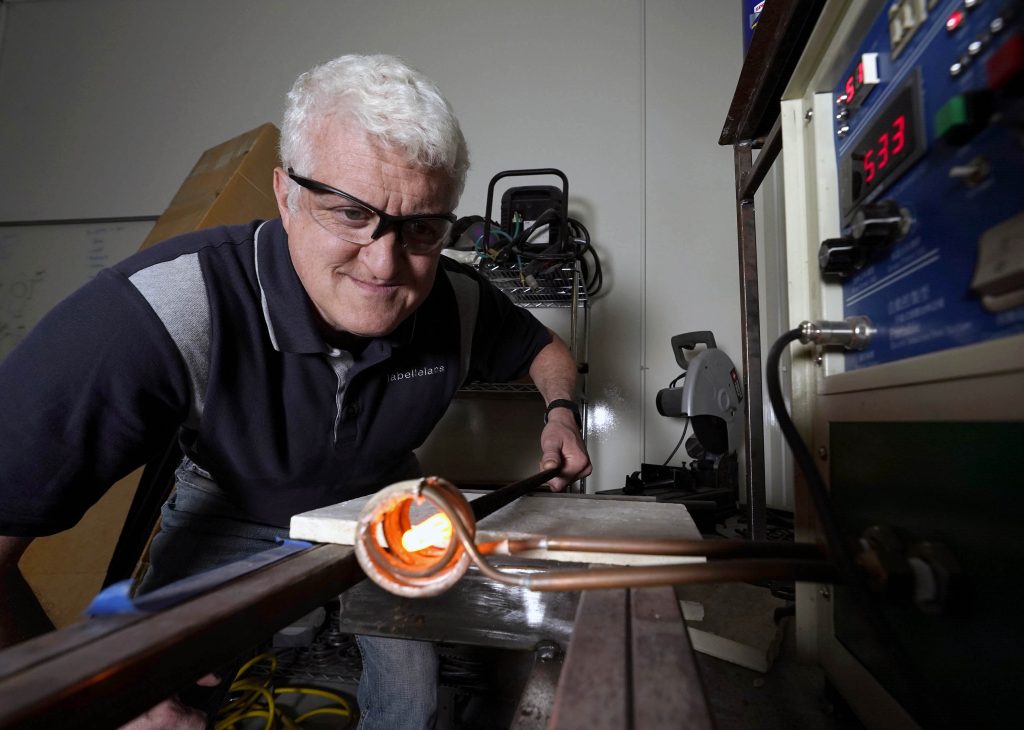
Also part of the magic? Pushing students to take risks. It’s what they’ll do in La Belle’s new board gaming class in the fall. Students will develop a game from ideation to prototype, something he does himself as the owner of TableTop Boardgames.
When he first pitched the class at ASU and GCU, the fear was that students would fail. “I’m like, the students ARE going to fail. That’s how you learn. That’s engineering.”
The payoff is that students will learn how to build a prototype product, which is exactly what they do for their senior capstones.
The students ARE going to fail. That's how you learn. That's engineering.
Dr. Jeff La Belle
“When I teach them how to build a prototype, I’m getting that fear out of them and inspiring them so that when they walk into a capstone, they’ll be able to do it.”
What motivates La Belle is having a collaborative space where undergraduate and graduate students, professors and industry can stew in a science-y, business-minded think tank of sorts.
La Belle, a prolific grant writer who also is an adjunct professor at the Mayo Clinic, lives that play-in-the-sandbox mantra himself. Not only is he a professor, he’s also a blacksmith, machinist, tool and mold designer, wood worker, and 3D printer and caster.
He estimates that he has taught more than 3,000 students and mentored 300 of them in labs. “I don’t ever really want to call it research. It’s teaching in a lab environment,” said La Belle, who calls the students he mentors apprentices, not interns.
He also has partnered with companies, such as Benchmark Electronics, to engage with students on projects. The company has challenged students to make its “BenchBot” robot perform various tasks, such as transport items across a warehouse.
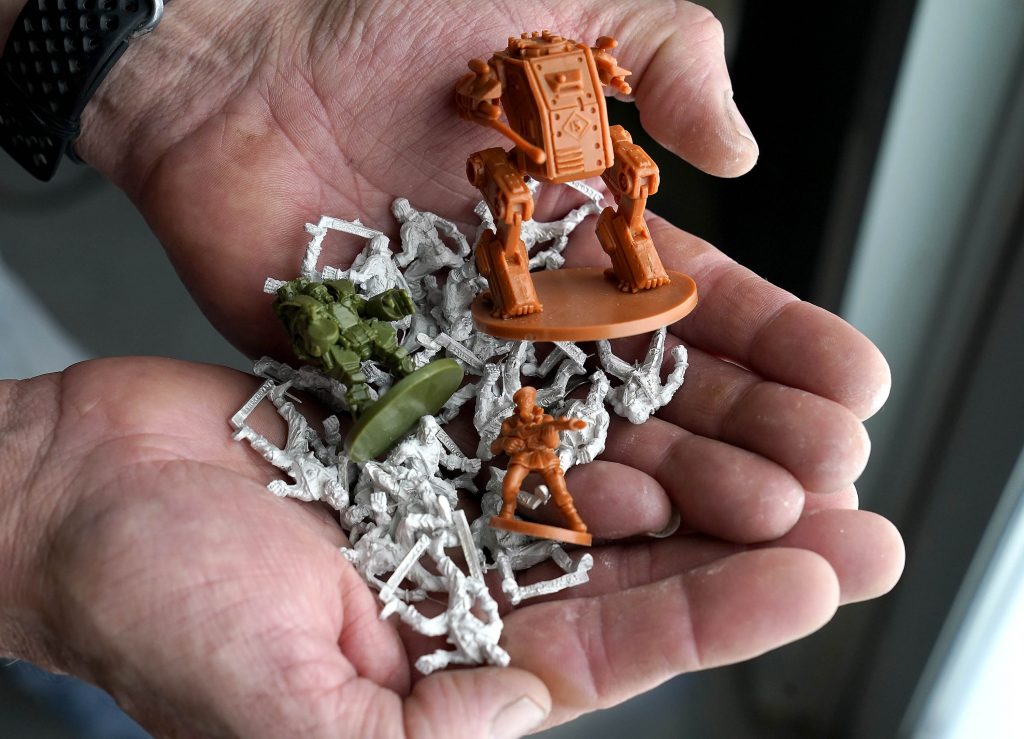
“I’m trying to bring more companies here because these are the people students need to learn from, too.”
What occupies much of his focus is the Helmsley Charitable Trust-funded project to improve the monitoring of diabetes.
“We have thermostats in rooms that are more complicated than what we have on people’s devices that are keeping people alive. That actually insulted me,” said La Belle, who said managing diabetes through glucose monitoring feels like an afterthought, almost like measuring your heart after a heart attack.
“I said, 'What if we could get on the front end of that and do something better?'” So not just measure glucose but insulin, too. “If we can measure more than one thing — roll, pitch and yaw — can we keep the airplane stable?”
The lab also is home to STELLAR, the student group La Belle mentors. Its first project just returned from the International Space Station.
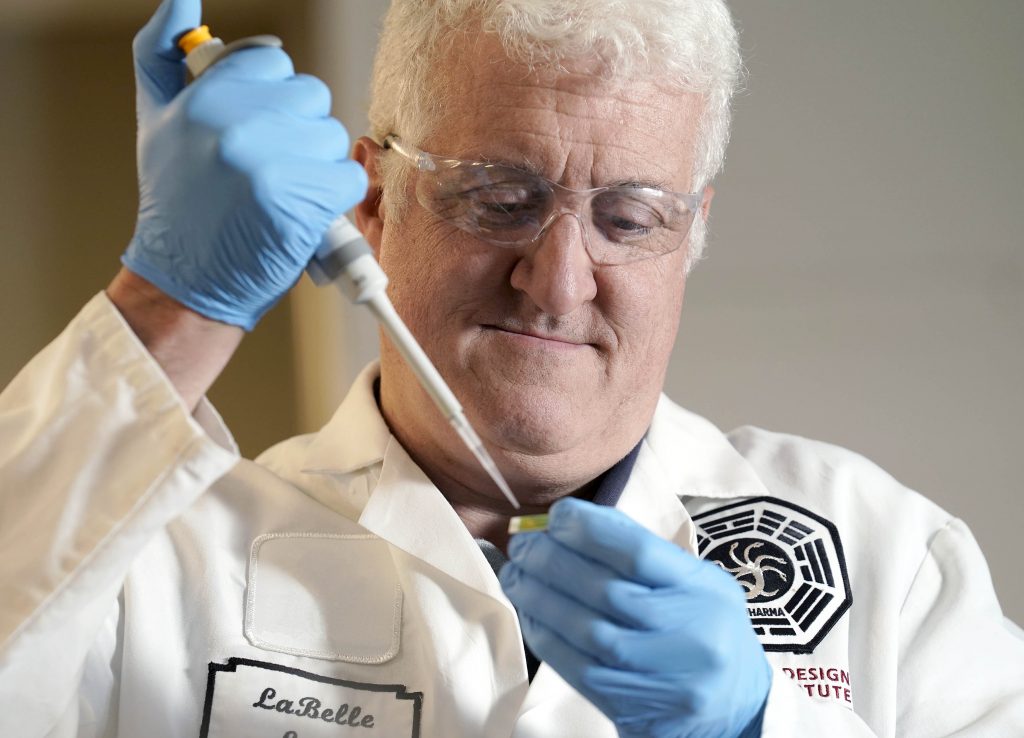
And a visiting Tokyo University of Agriculture and Technology scholar is at the lab working on molecular recognition elements for advanced sepsis care.
To be truthful, La Belle said with a smile, “I never know how many projects I have going on.”
Whatever La Belle does — from buying a game board company he uses to teach students prototyping to learning blacksmithing to help teach product design — it’s meant to help his students.
Junior biology/business major and STELLAR founder Erik Yost sought out La Belle when he was still in high school.
“He is a phenomenal mentor,” Yost said, because he gives students room to lead the program but supports them any way he can.
STELLAR co-founder/mechanical engineering junior Nathan Olsen said La Belle taught the group how to organize a team and advised on business dealings with partner organizations: “He has poured into me as a student and leader. He embodies the cliché of going the extra mile for students and takes the position of mentor seriously.”
“Kids are getting jobs. They’re coming back and saying thank you for what you do. THAT’s the job,” La Belle said. “It’s my love of teaching and seeing the students succeed. That’s my motivator. It gets me up in the morning. It gets me here.”
****
Related content:



































































